Your Choice of News: A Quick Discussion (VJI-M2-02-EN)
Platform Administrator
Objectives
- Promote critical thinking about news sources
- Promote reflection on one’s choices in news
Target group(s)
- Students
Description
- Step 1: The lecturer asks the students to write down their current sources of news stories on the board, and whether these sources are traditional media or trending social media.
- Step 2: The lecturer then facilitates a group discussion on the following questions:
Why did they choose that source(s)?
Why do they think it is reliable?
Could they identify the author of the story?
How many times have they re-sent, re-tweeted or posted a story without any investigations of its authenticity or reliability?
- Step 3: Evaluate the importance of critical thinking when consuming news. Explain the six questions which can help the students think critically about news sources:
- Type: what kind of content is this?
- Source: who and what are the sources cited and why should I believe them?
- Evidence: what is the evidence and how was it vetted?
- Interpretation: Is the main point of the piece proven by the evidence?
- Completeness: What is missing? What might be an alternative explanation or understanding?
- Knowledge: Am I learning every day what I need?
Also briefly talk about the idea of “critical ignoring”: sometimes it is better to not critically analyse an potential untrustworthy source. This takes up a lot of energy. It can be better to just ignore it sometimes.
- Step 4: End on the note that there is a fine line between healthy scepticism.
Material
- A white board with markers
Methods
- Varied and active engagement
- Social nature of learning
Sources
United Nations Office on Drugs and Crime. (2018, September). Teaching Guide for lecturers using the E4J University Modules on Integrity & Ethics. The Doha Declaration: Promoting a Culture of Lawfulness. https://www.unodc.org/e4j/en/integrity-ethics/teaching-guide/table-of-exercises.html
Handouts
None.
Calendar
Announcements
- - There are no announcements -

